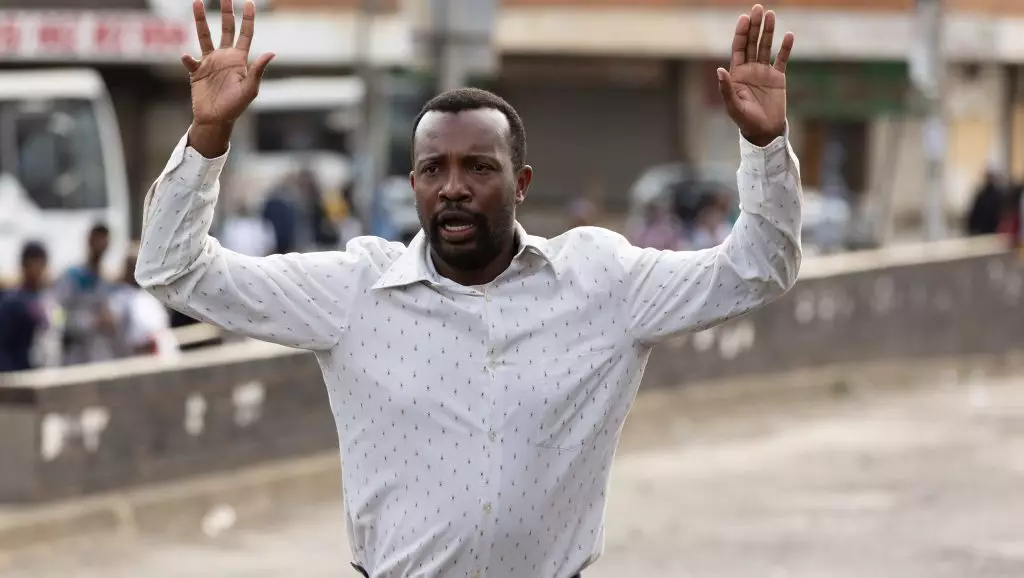In an era when true crime narratives become cultural phenomena, the gripping documentary series “The ABC Killer” takes a chilling plunge into the darkest corners of South Africa’s criminal history. Produced by Showmax and premiering with a compelling trailer, this three-part series chronicles the heinous acts of Moses Sithole, a man whose gruesome legacy includes the conviction of 38 murders, 40 rapes, and six robberies – all in a mere span of 12 months. Disturbingly, these atrocities unfolded in broad daylight, striking fear into the hearts of an entire nation as South Africa navigated its newfound freedom post-Apartheid.
Imagine living in a society freshly liberated from tyrannical rule, only to find yourself terrorized by a predator who never seemed to sleep. As former detective Paul Nkomo poignantly states in the trailer, “I thought the devil has come down to Earth.” This sentiment encapsulates the horror faced by communities plagued by Sithole’s attacks, adding a chilling psychological layer to the series that goes beyond the surface of criminal acts.
Early Days of a Journalist’s Nightmare
The documentary skillfully interweaves the narrative of rookie journalist Tamsen de Beer, who played an intricate role in unveiling the monster that was Sithole. Working the night shift at The Star newspaper, de Beer received a phone call that would alter her career—and her emotional psyche—forever. This interaction is not just an exchange of information; it evolves into a disturbing bond between the predator and the prey, complicating the moral fabric of journalism itself. De Beer reflects on her experience, describing it as “a journey I was on with him,” which raises pressing ethical questions surrounding empathy and the responsibility of media professionals in covering sensitive topics.
It’s maddening to consider how such a strange bond could form during engaging with a killer. Yet, within this unsettling connection lies an exploration of the human psyche, a territory that the documentary bravely navigates. It prompts viewers to reflect on the fragility of human emotions in the face of evil, juxtaposing journalistic curiosity with the gravitas of the impact such narratives have on the victims and their families.
Unmasking the Face of Evil
Sithole’s heinous actions primarily targeted young Black women across regions such as Atteridgeville and Boksburg, a detail that adds layers of complexity to his modus operandi and raises questions about societal vulnerabilities. As the docuseries unfolds, it becomes apparent that issues of race, gender, and inequality play fundamental roles in both the narrative and the response of law enforcement to Sithole’s crimes.
Showmax does not shy away from the real-world implications of these atrocities—one only needs to look at the cast, which features Gifter Ngobenisen as Sithole and Louise van der Merwe as de Beer, to grasp the serious approach taken towards this project. Extensive reenactments shot in the actual settings of the events provide an immersive experience that educates viewers not just about the crimes, but also about the broader societal context.
The documentary is the brainchild of director Jasyn Howes, who is evidently committed to revealing complex historical narratives. It follows his previous work “Boetie Boer,” which earned accolades for its portrayal of another notorious South African murderer. Howes, along with writer Andy Petersen, delves deep into demographic and psychological insights, offering a rich landscape where crime and society intersect.
Voices from the Past: A Tapestry of Perspectives
The documentary amplifies various voices, which makes it a more textured viewing experience. From police detectives like Micki Pistorius to the bold survivor Buyiswa Swakhamisu, who recounts her harrowing brush with mortality, the series creates a mosaic of emotional responses to Sithole’s reign of terror. The varied perspectives serve not just to inform but also to evoke empathy and provoke critical reflection among viewers.
While Donald Trump’s America might have its serial killers garnering media attention, Sithole stands as South Africa’s haunting echo—their narratives woven into the fabric of national memory. Sithole, now serving 2,410 years in prison, symbolizes the darkest aspects of humanity, but “The ABC Killer” manages to infuse these discussions with hope for change and healing.
As viewers gear up to consume this riveting series, it becomes evident that such stories are not simply tales of horror but also invitations for dialogue about justice, humanity, and the collective responsibility toward social reform. Such powerful narratives resonate even louder in a world grappling with the complexities of crime, race, and justice, making “The ABC Killer” a vital piece of cultural discourse.
